Resources included are all available for downloading:
(i) The Challenging behaviour Scale - CBS (Moniz-Cook et al 2001) https://pubmed.ncbi.nlm.nih.gov/
(ii) A Toolkit for care home liaison teams - Assessment and delivering interventions in care homes from: https://www.ncbi.nlm.nih.gov/books/NBK447072/
(iii) Bite size Video clips for home / care home liaison teams to use for training staff and family carers. from Module 3 Coping with Behaviour e-learning page
(iv) Bite size animations for training staff families and the public - including for COVID-19 produced by CNTW NHS Trust (Ian Andrew James - the author).
The Challenging Behaviour Scale (CBS)
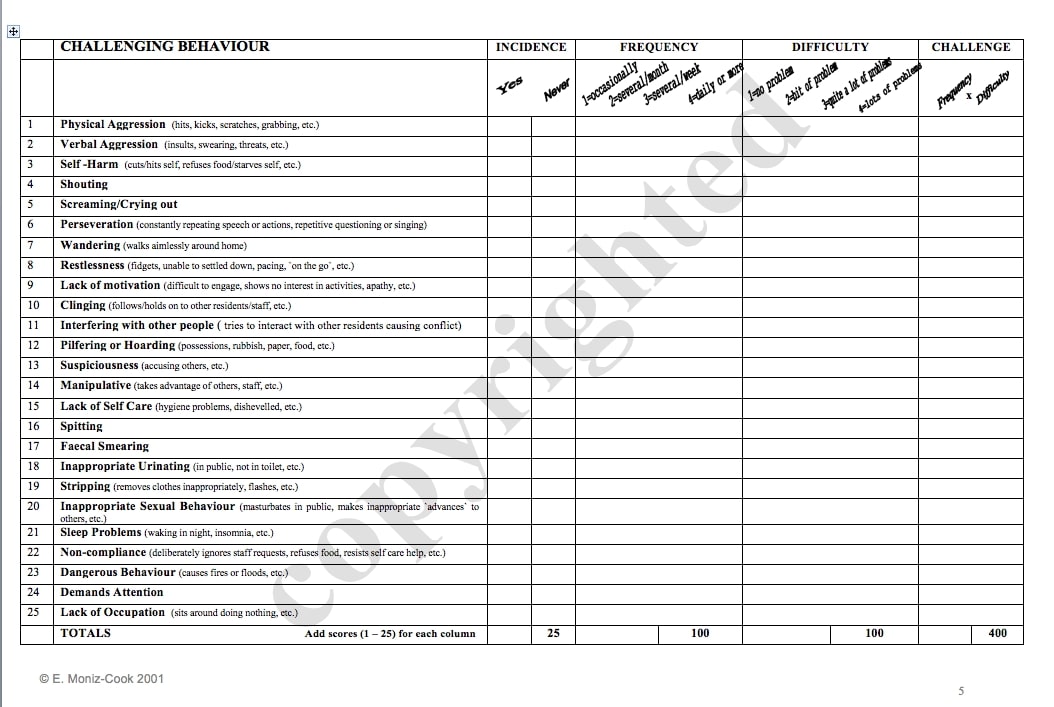
The CBS was first conceived, as the Problem Behaviour Inventory for evaluation of a staff training intervention (Moniz-Cook et al 1998). Development involved staff report of their everyday experiences of behavioural care-challenges. During extensive reliability and validity studies and further consultations with hands-on-care staff from hospitals and residential/nursing care homes, it was re-labelled The Challenging Behaviour Scale - CBS (Moniz-Cook et al 2001). Two decades since its development, the authors accept that language descriptors have altered. The CBS is a valid instrument when completed by or with staff who work in care/nursing home settings, or hospital units using the guidance we provide. The CBS is NOT a valid instrument for use in family care settings or for services for people with Intellectual Disabilities.
Click here for further useful information
Click here for access to key References
The CBS is free to use but is Copyrighted
Click here to download the CBS:
For enquiries / permissions and information about new developments, please email Professor Esme Moniz-Cook: E.D.Moniz-Cook@hull.ac.uk
CHALLENGE DEMCARE: Resources for care home liaison teams 'Real Life Videos'
These real-life videos have been extracted from
our interactive E-learning course Module 3, where actors were used
to demonstrate case studies Coping
with Behaviour e-learning page which trains staff an
practitioners to detect the causes of common behavioural
care-challenges and develop health and psychosocial action plans
to resolve these. Here we make these videos taken from nine case
studies available for specialist practitioners to use in
facilitated training of care home staff in the delivery of person
centred care for their behavioural care-challenges. With thanks to
Professors Graham Stokes, Bob Woods and Esme Moniz-Cook for cases
that appear in Module 3.
We would also refer users to Module 2 of our e-learning, where practitioners who register to use the free access course can use video material to train carers to detect emotional communication before proceeding to work out how to resolve the behavioural care-challenge in situ. Coping with Behaviour e-learning page
Family Care settings
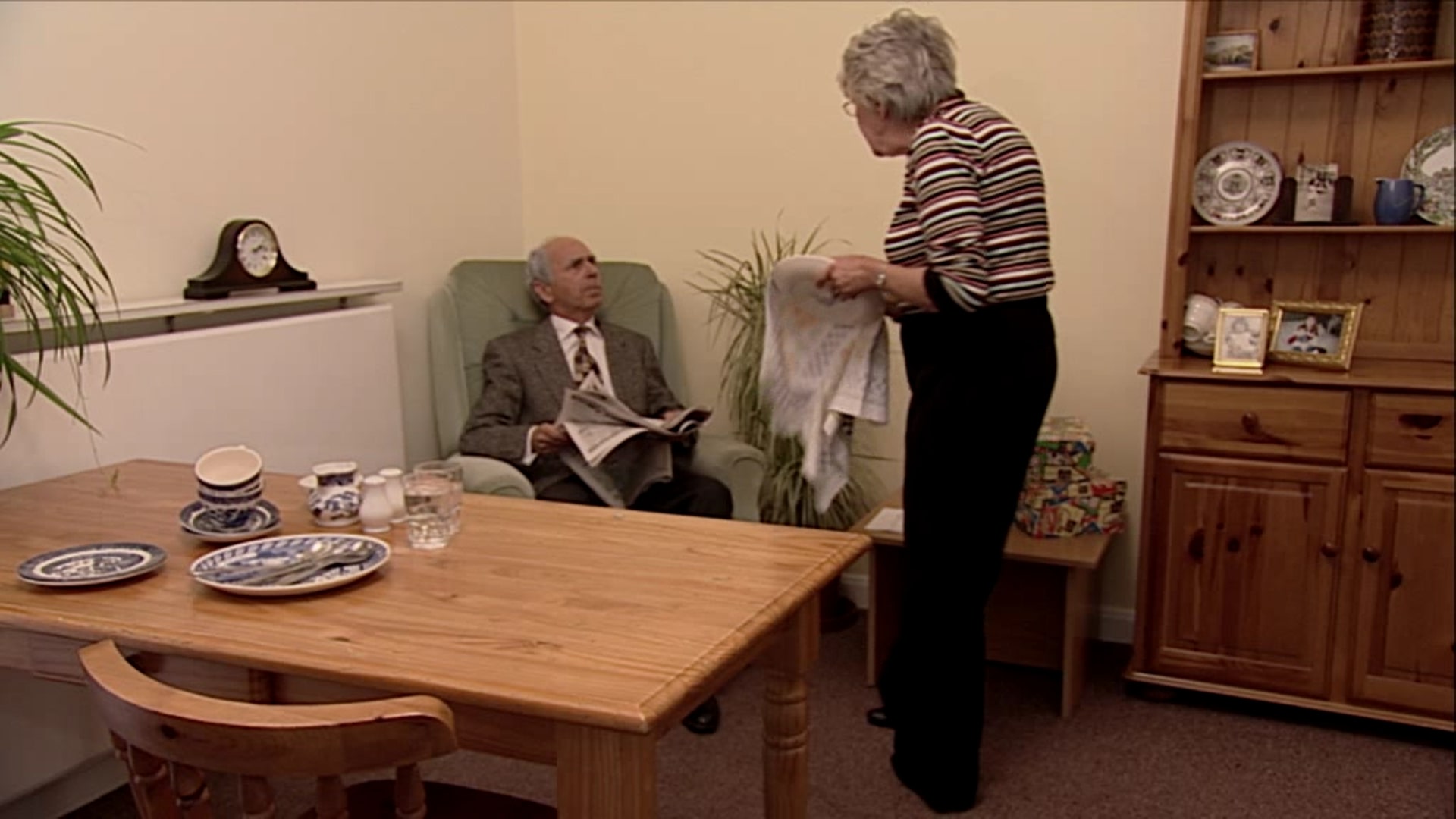
George: ‘Repeated Questioning’
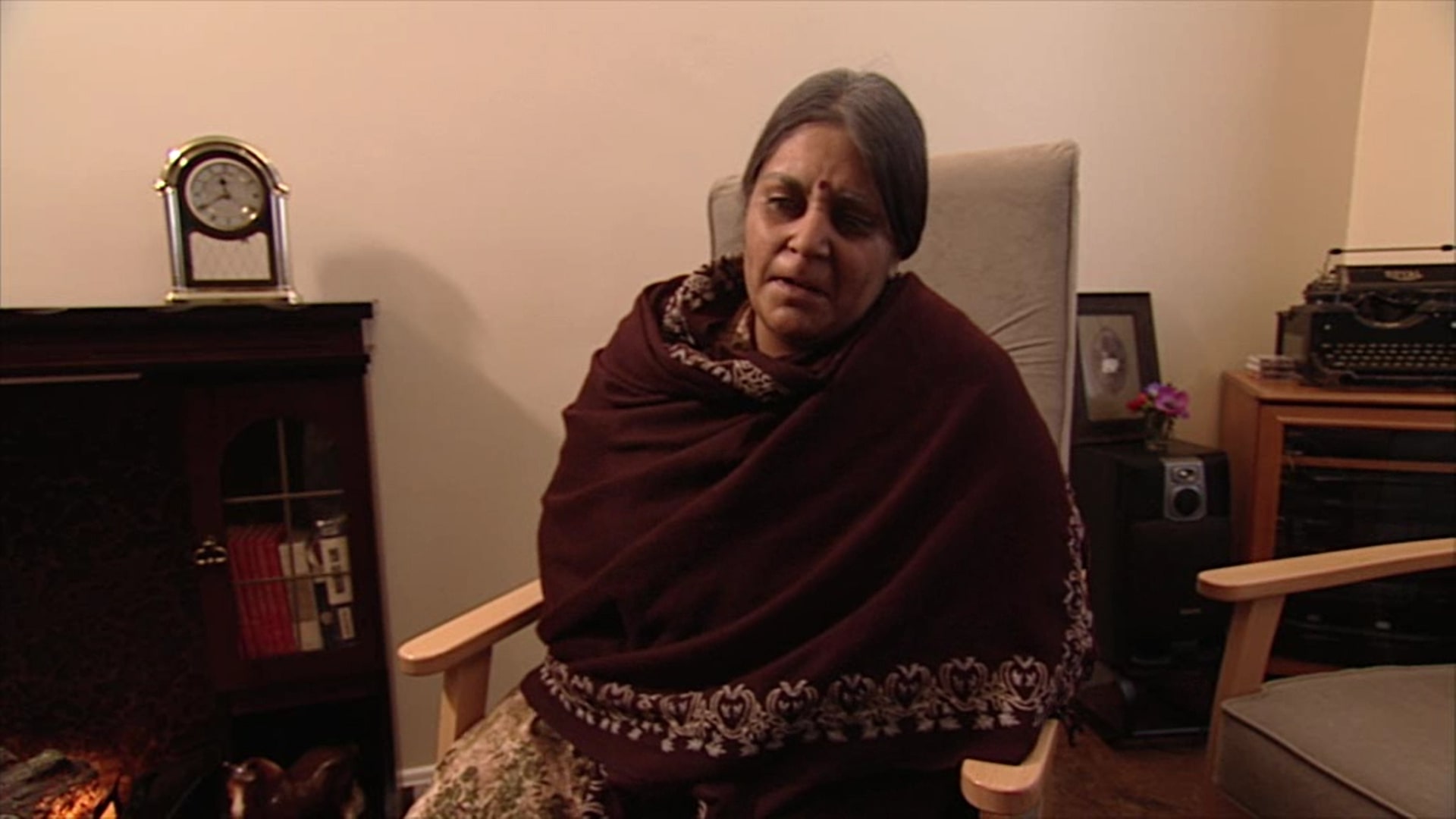
Amitta: ‘Shouting and Screaming’
Care / Nursing Home Settings
George Resists Help: https://youtu.be/bLW8LSx88s0
Lucy ‘Interferes’ with others: https://youtu.be/7l67KSiML24
Betty resists Help: https://youtu.be/6dKna5llr3U
Amitta ‘interferes’ with others: https://youtu.be/SX7whFXh12k
Amitta ‘steals’ from the kitchen: https://youtu.be/czA_2PHUP00
Betty’s ‘paranoia’: https://youtu.be/aFEgyBZsAh8
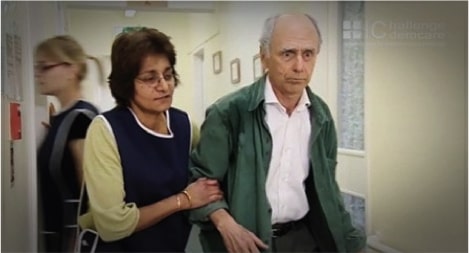
George repeatedly ‘floods’ the bathroom
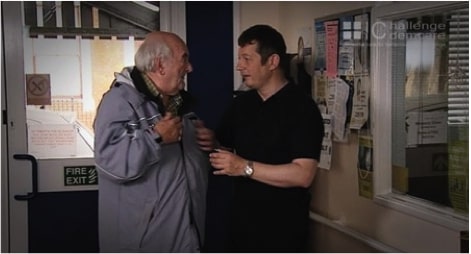
Occupation: Mick looks for usual activity
Communicating during behavioural disorientation
Communication: ‘over-stimulated brain’
Mick is verbally inappropriate: https://youtu.be/gaHx9dwZQCY
Communication: Distress, discomfort and disorientation
(i) Empathic interaction: Mick ‘wet’ (disorientated) https://youtu.be/RKek3IwYw3w
(ii) Empathic interaction: Mick in discomfort https://youtu.be/Mc26lckuDCA
(iii) Misunderstood need: ‘wet’: https://youtu.be/3Uhr8gYKSAc
Tool Kit For Care Home Liaison Teams
This Tool-kit has been drawn from the NIHR Challenge Demcare research process evaluation on implementing staff training and specialist practitioner-led interventions in care homes. Click here for the tool-kit
Behaviour That Challenges: Training Animations
These animations are a product of collaboration between CNTW NHS Trust (Ian Andrew James - the author) and the British Psychological Society, Division of Clinical Psychology, Faculty of the Psychology of Older People - FPOP. For an update of the Newcastle Model and these animations click here
Formulation in dementia care: https://youtu.be/gOfIWzUUxqk
Fundamental needs in dementia: https://youtu.be/R0C2ug7AbTY
The Newcastle Model - a family guide for inpatient units: https://www.youtube.com/watch?v=RceK5vNgJs8
Therapeutic lies in dementia care: https://youtu.be/nlAT2210CXE
Understanding memory changes in dementia: https://youtu.be/aSx5sUVBcCE
Understanding sensory changes in dementia: https://youtu.be/KHUijkp-kj0
Understanding thinking in dementia: Fast and slow: https://www.youtube.com/watch?v=Fa_Q9ACELlI
COVID-19
Meeting the needs of people with dementia during Covid-19: https://youtu.be/blJjUwBhVpk
Why were care homes so badly hit during the COVID-19 pandemic?: https://www.youtube.com/watch?v=XYjLW1D1zG4